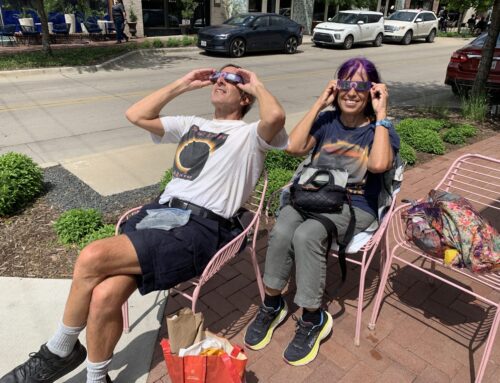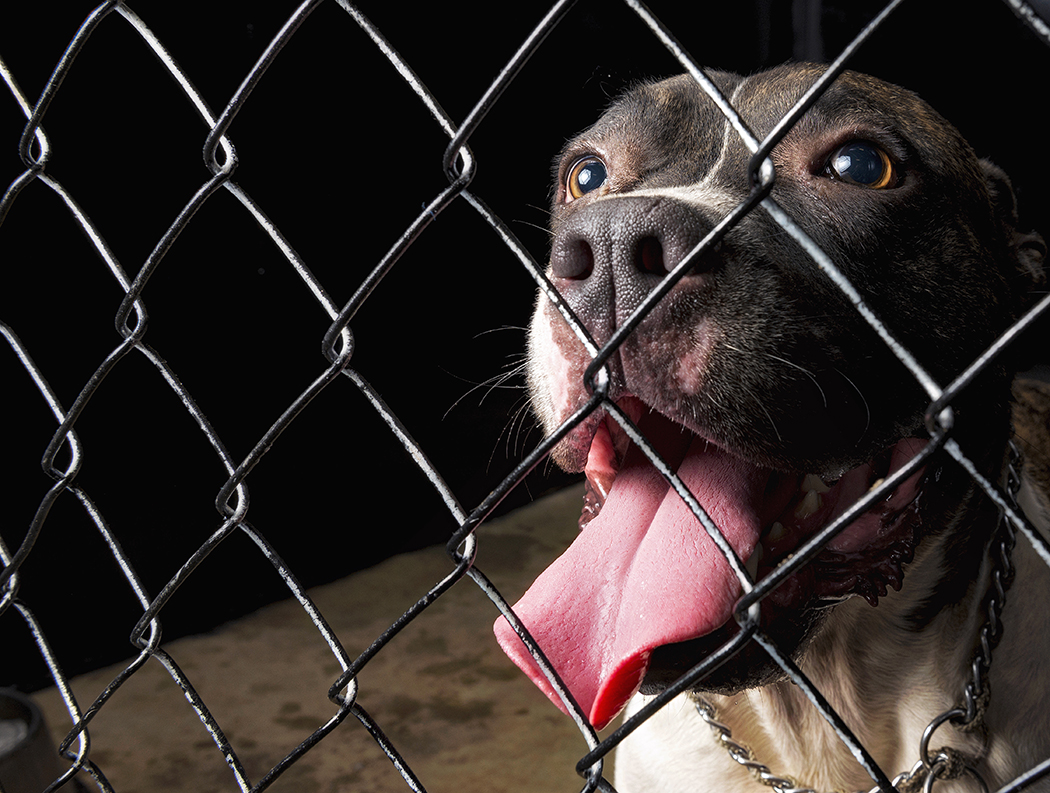
Dog shown: Jax
Photo by Danny Fulgencio
Dallas Animal Services has improved its euthanasia rate — about 52 percent of animals the city sheltered in 2014-15 were adopted out, marking the first time in recent history that more animals were adopted than killed. But few city departments have been scrutinized more than DAS. Over the past few years, it has struggled with slashed budgets, an employee who faced a felony indictment after a cat was left to die inside a wall, dead dogs dumped on remote South Dallas roads and overwhelming numbers of stray and loose dogs, especially in southern Dallas. The privately funded Big Fix for Big D campaign offered free spay and neuter services for years, but that hasn’t been enough to improve our canine crisis.
It’s often considered a problem for the southern sector, easily ignored by those on our side of Dallas. But the crisis came barreling into the public eye when 52-year-old Antoinette Brown was mauled by a pack of dogs while walking in her South Dallas neighborhood May 2. She died from her injuries about a week later.
Dallas Animal Services received funding recently for a volunteer program, but it’s possible the city department won’t receive a budget increase this year.
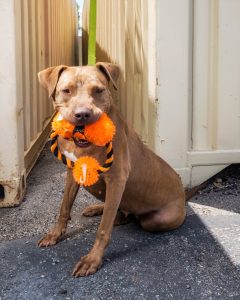
Ziva is a formerly chained yard dog that Angie Manriquez rescued from West Dallas. The dog’s puppies were adopted, but Ziva still needs a home. Photo by Danny Fulgencio
Oak Cliff residents have a way of finding fixes to citywide problems when officials can’t seem to figure them out, says Chris Watts, who owns Petropolitan and is City Councilman Scott Griggs’ appointee to the city’s animal advisory committee.
“It’s really important for everyone’s voice to be heard,” he says. “If people have creative solutions, things they’ve seen in other cities that have impacted the wellbeing of people and animals, don’t sit on it. Bring it to us.”
In the meantime, some neighbors continue their daily grind of finding homes, educating their neighbors and otherwise working to keep dogs off the euthanasia list and out of harm’s way. These are a few of their stories.
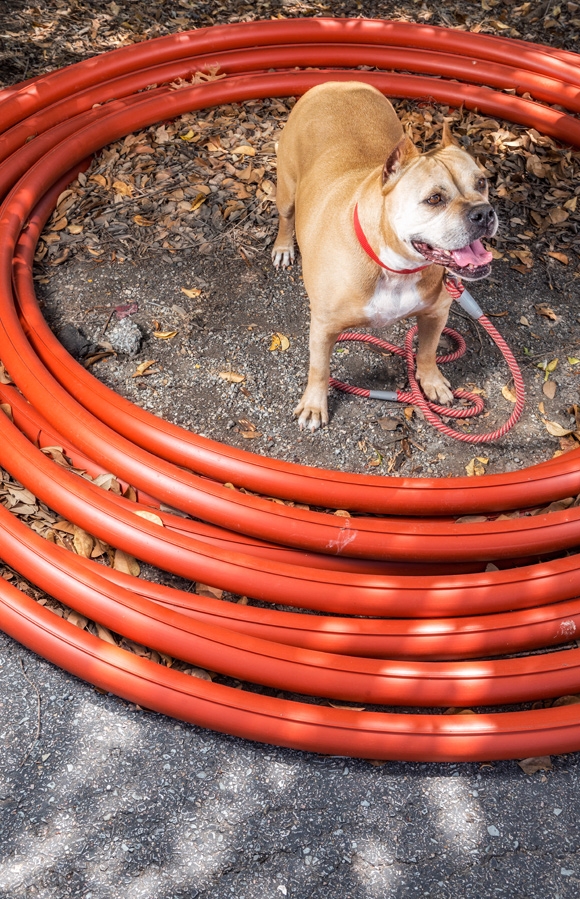
Angie’s Friends has been fostering this cuddle bug, Baby, for about two years. Photo by Danny Fulgencio
Angie’s Friends rescues chained and free-roaming dogs in West Dallas
Angie Manriquez started helping chained-up and roaming dogs in her West Dallas neighborhood in 1999.
Sometimes she would bring food and water to neglected yard dogs. Or she would earn the trust of a scared and unwanted Chihuahua.
Now she manages nine feral cat colonies, feeds six flocks of chickens and helps as many stray and neglected animals as she can.
It’s not just about animals; it’s about people. A big part of Manriquez’s mission is encouraging people to improve their animals’ living conditions. She donates food and helps with veterinarian bills.
“She gets onto people about how they’re treating their animals,” says Amanda Struse, a volunteer with Angie’s Friends, the nonprofit that formed to support Manriquez’s efforts.
Angie’s Friends volunteers foster dogs and shuttle them to adoption events every weekend. They have a foster network of about 15 families.
Most of the animals Manriquez helps are pit bulls or Chihuahuas, both difficult breeds to place, and they’re usually adult dogs, which also are more difficult to place in homes.
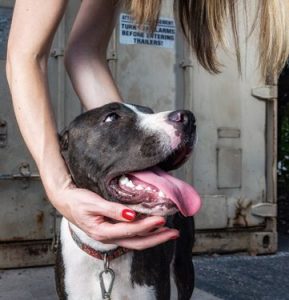
Jake is among the dogs Angie’s Friends fosters. Photo by Danny Fulgencio
Angie’s Friends is not a big operation. It has adopted out about 30 dogs so far this year, but there are foster dogs that have been in the program for years.
One is Baby, a formerly chained yard dog, who has been looking or a forever home for two years. Even though she lived her first five years at the end of a chain, she is sweet and cuddly, although she hates cats.
Ziva was another chained dog that wasn’t spayed and had puppies. Her owner told Manriquez she could take the puppies, and he’d planned to take the mother dog down to the Trinity River to “set her free.” The puppies were easy to adopt out, Struse says, but Ziva’s been harder to place, even though she’s affectionate and plays with other dogs once she warms up to them.
Manriquez is now 75, and she recently underwent triple bypass surgery. But she’ll soon be out there working on behalf of dogs once again.
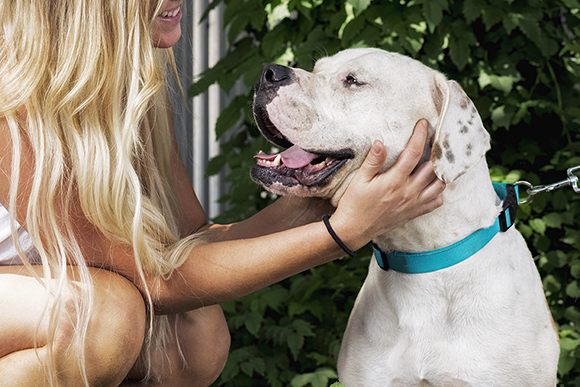
Adoptable dog Bart recieves some love from No Bully Left Behind co-founder Julie Fennell. Photo by Danny Fulgencio
No Bully Left Behind rescues “bully” breeds in Dallas and beyond
Two teachers, both with long blond hair and trendy foot tattoos, living 10 miles apart, found each other on “bully” breed rescue websites.
Jennifer Harrell Vines and Julie Fennell met and began working together last summer, pulling pit bulls and bulldogs off of euthanasia lists and finding them foster homes. They quickly formed a nonprofit.
No Bully Left Behind recently rented a building in Elmwood to keep their kennels, where they can house about 20 dogs.
“This is the most euthanized breed in America,” Vines says.
The rescue recently helped a family down the street, whose dog had 10 puppies. No Bully Left Behind took the puppies, which were all adopted, and had the mother dog spayed.
But they also accept dogs from outside of Dallas. They pull dogs from shelters in Miami because of a ban on bully breeds there. It’s illegal in Miami-Dade County to own or keep American Pit Bull Terriers, American Staffordshire Terriers, Staffordshire Bull Terriers or “any other dog that substantially conforms to any of these breeds’ characteristics.”
“We catch a lot of heat for that,” Vines says. “But we’re not going to ignore a need. We’re going to do what we can.”
They also accept dogs from the Corsicana city shelter, which has an unofficial policy against adopting pits back into their city, Vines says.
One of them is Jax, a brindle pit bull who was found being attacked by four other dogs. They took 2-year-old Bart from the Irving shelter, and it will take a special person to adopt him, Fennell says. His two front legs are shorter than his back legs. But he’s a sweet little cutie, she says.
The nonprofit needs fosters for long-term placement, but they also need volunteers who can foster for a weekend or one week. They can also use help with dogs who just need attention during the day. Volunteers also are needed to help at the new shelter on Ferndale to walk and play with the dogs. Fill out an application at nobullyleftbehind.com.
“These dogs have been through so much. They’ve been abused or on the streets, and then they’ve been in shelters, which is not a friendly environment,” Vine says. “They just want safety and security and a home.”



